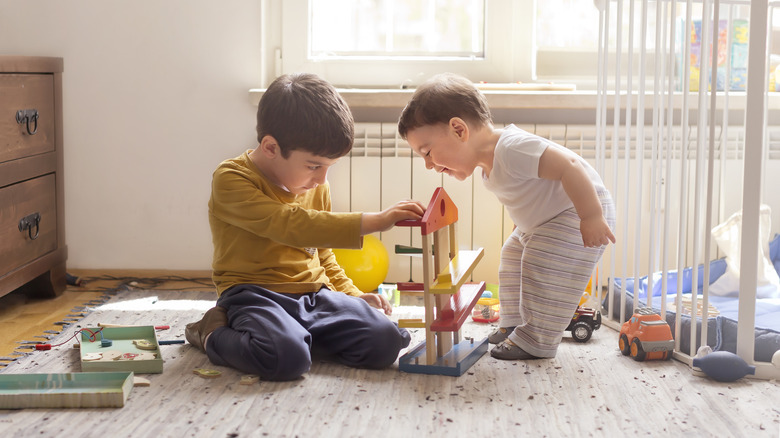If You Always Thought Your Parents Favored Your Sibling, You Were Probably Right
Moms and dads will always say, "I love all my children equally," but for many siblings, it doesn't feel that way. No matter how well you get along, there are inevitably times of conflict in any sibling relationship, and research shows that sibling rivalries are definitely grounded in reality. A new study published in the journal Psychological Bulletin gathered data from 30 different research papers, covering data from 19,469 participants in total across multiple countries. It found that not only is parental favoritism common, but that it also follows some clear patterns.
The study found that parental favoritism can be predicted based on a few traits. Firstly, both mothers and fathers more often favored their daughters over their sons, and this was especially true of subjects in the United States. Parents also favored children who showed personality traits associated with higher intelligence, such as being conscientious and organized. Agreeableness was also favored. The overall takeaway is that parents generally favor children they see as being easy to manage.
Birth order does not necessarily correlate with favoritism, but it does affect how the child is treated. Older siblings are more likely to be granted autonomy and thus show better developmental capabilities than younger siblings. Another significant point to note is that the research showed that parents favor the same child into adulthood, and the effects of that parental favoritism can last a lifetime.
The psychological impact of parental favoritism
How common is parental favoritism? A study from 2020, published in Frontiers in Psychology, showed that there is a favored child in 65% of families. However, this favoritism is usually subconscious. When parents say they love all their children equally, they believe themselves, but their behaviors often suggest differently. Psychologists refer to this as parental differential treatment (PDT), and it can take the form of parents spending more money on one child than the other, exercising more control over one child, punishing their children unequally, or spending more time with one child.
Children can perceive PDT from a very early age, and it can leave a lasting imprint on a child's developing mind (editing bad memories isn't quite an option yet, after all). Siblings who believe they are the less-favored child are more likely to develop self-esteem issues, depression, and risk-taking behaviors. Even the favored sibling can face negative consequences from PDT. Stress in general can affect the brain, so on top of that, parental favoritism damages sibling bonds, fostering resentment and conflict, which can lead to tensions between siblings that last a lifetime.

